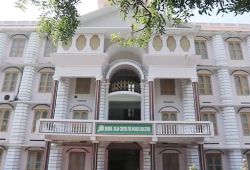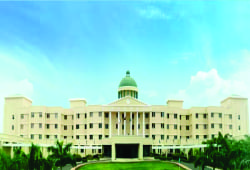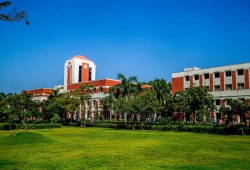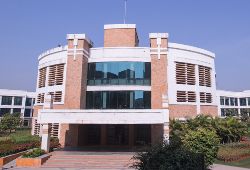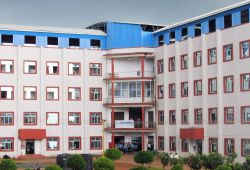Chennai is well known for the cultural, ethical values and education standards. Apart from traditional engineering, there is Aerospace Engineering in Chennai who became popular due to aviation industry growth in research organization in Chennai. The aviation sector is touching sky so Aerospace Engineering became well-known course. There is best Aerospace Engineering Institute in Chennai to serve education in Aerospace Engineering in Chennai.
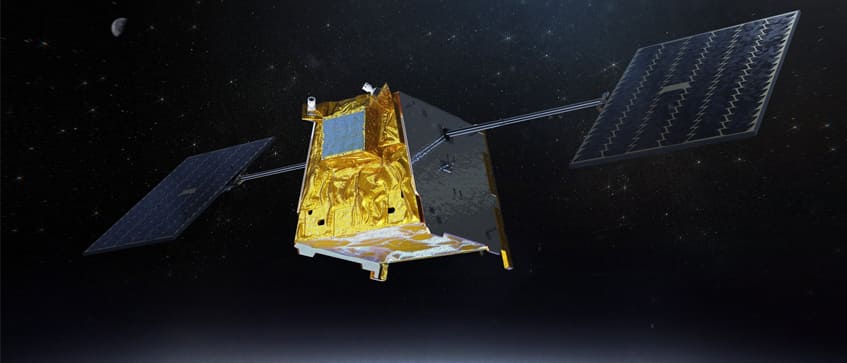
Best Aerospace Engineering Colleges in Chennai
The demand of aerospace engineering is a fascination for people for it allows them to soar high in the skies and out of the earth. Also, Chennai is a city in India that is rich in cultural worth and is home to numerous universities that are renowned for their aero engineering courses. This write up would describe the best aerospace engineering colleges in Chennai along with the salient features that make them suitable for people aspiring to become aerospace engineers.
| Property | Value |
|---|---|
| Course Name | Aerospace Engineering |
| Full Form | Bachelor of Technology (B.Tech) or Bachelor of Engineering (B.E) in Aerospace Engineering |
| Streams | B.Tech/B.E Aerospace Engineering |
| Course Type | Degree |
| Course Duration | 4 Years |
| Examination Type | Semester wise |
| Eligibility | XII (PCM/PCB), 3 Years Engineering Diploma |
| Admission Process | AME CET (Aircraft Maintenance Engineering Common Entrance Test) |
| Course Fees | 5 to 10 lakhs total course fees |
| Average Salary | Starting Salary: 6 to 10 Lacs per annum |
| Top Recruiting Companies | Boeing, Airbus, Lockheed Martin, NASA, ISRO, DRDO, Bombardier, etc. |
| Top Job Profiles | Aircraft Design Engineer, Avionics Engineer, Manufacturing Engineer, Testing Engineer, Quality Control Engineer, etc. |
Why Choose Chennai for Aerospace Engineering?
Home to a vast aerospace sector, Chennai, the capital of Tamil Nadu, is a bustling city in the South of India. It is also the automotive hub of the country, and there are numerous aerospace companies and research institutes. Due to its location by the sea, infrastructure, and growing aerospace sector, Chennai has become an attractive destination for students wanting to become aerospace engineers.
Aerospace Engineering Colleges in Chennai Fees
The type of college, the program level (undergraduate or postgraduate), and whether the college is privately owned or government-funded are some of the variables that can affect the cost of aerospace engineering colleges in Chennai. An outline of the costs associated with aerospace engineering programs in Chennai is provided below:
- Government Colleges: Aerospace engineering programs in Chennai are generally more reasonably priced at government-funded universities. For Tamil Nadu residents, the annual cost of undergraduate programs such as the B.Tech in Aerospace Engineering can range from INR 10,000 to INR 50,000. However, there might be a slightly higher cost for students from other states.
- Private Colleges: Chennai's private aerospace engineering colleges typically charge more. The annual tuition for an aerospace engineering B.Tech program can range from INR 1,00,000 to INR 3,00,000 or higher. Depending on the institution's standing and reputation, the fees can differ greatly.
- Postgraduate Programs: The cost of a postgraduate program, such as an M.Tech in Aerospace Engineering, may be marginally more than that of undergraduate programs. The annual tuition at government colleges can vary from INR 20,000 to INR 1,00,000. For postgraduate programs, private colleges may charge INR 1,50,000 to INR 3,00,000 or more.
- Additional Costs: Students should budget for extra expenses like textbooks, living expenses, and hostel fees in addition to tuition fees. These costs can vary based on location and lifestyle.
- Scholarships and Financial Aid: Depending on their academic standing and financial need, many universities provide financial aid and scholarships to qualified students. To help with the cost of education, it is a good idea to look into and apply for such opportunities.
Eligibility Criteria for Aerospace Engineering Colleges in Chennai
You must fulfill certain eligibility requirements in order to be admitted to Chennai's aerospace engineering colleges. The following are requirements for potential students studying aerospace engineering:
Admission Eligibility:
- Academic Qualifications: Having a solid background in mathematics, physics, and chemistry and passing the 10+2 exam.
- Entrance Examinations: Passing state-level engineering entrance exams or entrance exams like AME CET, JEE Main and JEE Advanced.
- Minimum Aggregate Marks: Completing the qualifying test with a minimum overall score, usually 50% or above.
- Additional Entrance Exams: Candidates may be required to pass additional entrance exams designed to their college.
- Age and Nationality: As part of their eligibility requirements, some colleges might have particular age restrictions or nationality requirements.
Campus Facilities in Chennai for Aerospace Engineering Colleges
For practical training and research, aerospace engineering depends on specialized infrastructure and facilities. Aerospace engineering schools in Chennai provide cutting-edge amenities like:
- Aircraft Maintenance Hangars: Facilities on campus offer hands-on training in aircraft repair and maintenance.
- Rich Library Resources: A vast collection of books, research papers, and internet resources are available for students to use when conducting research in well-stocked libraries.
- Aviation Workshops: Workshops provide hands-on experience in aircraft engineering by providing the tools and equipment needed to construct and modify aircraft components.
- Computer Labs: With software for engineering projects and aerodynamic simulations, computer labs allow students to use technology in their education.
- Interactive Classrooms: Through the use of audio-visual aids, interactive learning is made possible in modern classrooms, improving the educational process.
- Research Centers: Dedicated to cutting-edge aerospace research, providing students with opportunities to engage in innovative projects.
- Hostel Facilities: On-campus housing promotes a feeling of community and brotherhood while ensuring students' safety and convenience.
- Sports and Recreation: Sports fields, gyms, and cultural clubs provide a well-rounded lifestyle that supports students' mental and physical health.
Aerospace Engineering Colleges Admission Process in Chennai
Chennai's aerospace engineering colleges have a set admissions procedure that may involve the following steps:
Admission Process through Entrance Exams:
- Application: For the relevant entrance exam, prospective students should fill out the application form with all the required information.
- Entrance Exam: Candidates are required to take the entrance exam, which evaluates their aerospace engineering skills and knowledge.
- Counseling: After the exam results are declared, eligible candidates are invited to participate in counseling sessions. Based on their rankings and the number of seats available, students can choose the colleges and courses they want to take during these sessions.
- Document Verification: Candidates must provide necessary documentation, such as their identification documents, scorecards, and educational certificates, as part of the counseling process.
- Seat Allotment: Candidates are given seats by colleges according to their entrance exam scores and choices.
- Fee Payment: To guarantee their spot at the selected college, admitted students must pay the necessary fees.
- Reporting to College: Lastly, in order to finish the admissions requirements and start their aerospace engineering program, students who were accepted through the entrance exam must report to their respective colleges on the appointed day.
Aerospace Engineering Colleges Syllabus in Chennai
Aerospace engineering programs in Chennai offer a comprehensive curriculum that covers various subjects throughout the four-year duration of the program. Here's an overview of the typical course syllabus:
First Year Subjects
Semester 1
- Calculus
- Physics - I
- Chemistry
- Basic Electrical Engineering
- Communication Skills
- Environmental Science and Engineering
- Physics Lab
- Basic Engineering Lab
Semester 2
- Vector Calculus and Ordinary Differential Equations
- Physics - II
- Material Science and Metallurgy
- Basic Electronic Engineering
- Engineering Graphics
- Computer Programming and Application
- Basic Electrical and Electronics Engineering Lab
- Chemistry Lab
Second Year Subjects
Semester 3
- Linear Algebra, Complex Analysis, and Fourier Series
- Engineering Thermodynamics
- Mechanics of Solids
- Fluid Mechanics
- Materials Processing Techniques
- Introduction to Economics
- Introduction to Machine Elements and Drawing
- Strength of Materials Lab
Semester 4
- Integral Transforms, PDE, and Calculus of Variations
- Aerodynamics
- Heat Transfer
- Applied Dynamics and Vibration
- Machining and Precision Manufacturing
- Introduction to Social Science and Ethics
- Metrology and Computer-Aided Inspection
- Thermal and Fluid Lab
Third Year Subjects
Semester 5
- Probability, Statistics, and Numerical Methods
- Compressible Flow
- Atmospheric Flight Mechanics
- Spaceflight Mechanics
- Theory of Elasticity
- Automatic Control
- Aerodynamics Lab
- Manufacturing Processes Lab
Semester 6
- Air-Breathing Propulsion
- Aerospace Structures
- Optimization Techniques in Engineering
- Principles of Management Systems
- Elective I
- Elective II
- Aerospace Structures Lab
- Modeling and Analysis Lab
Fourth Year Subjects
Semester 7
- Rocket Propulsion
- Aerospace Vehicle Design
- Environmental Science and Engineering
- Elective III
- Elective IV
- Flight Mechanics and Propulsion Lab
- Instrumentation and Control Systems Lab I
- Summer Internship and Training
Semester 8
- Comprehensive Viva-Voce
- Project Work
Aerospace Engineering Entrance Exam in Chennai
Entrance exams for aerospace engineering are essential for evaluating eligible students' aptitude, knowledge, and abilities. For admission to aerospace engineering programs at Chennai's many colleges and universities, these tests are essential. The following are some well-known entrance exams accepted for enrollment in aerospace engineering programs:
- Joint Entrance Examination (JEE) Main: The national entrance exam known as JEE Main assesses applicants' knowledge of mathematics, physics, and chemistry. JEE Main scores are taken into account for admission to many prestigious engineering colleges in Chennai.
- Joint Entrance Examination (JEE) Advanced: After passing JEE Main, candidates move on to JEE Advanced. It is implemented for admission to esteemed universities, some of which provide programs in aerospace engineering.
- State-Level Engineering Entrance Exams: Engineering entrance exams are administered by numerous Indian states, and students can use their results to gain admission to aerospace engineering programs in those states.
- Aircraft Maintenance Engineering Common Entrance Test (AME CET): For those who want to work as aircraft maintenance engineers or in related aerospace fields, the AME CET is a crucial entrance exam. AME CET scores are accepted for admission by a large number of universities that offer aviation and aerospace programs, including AME courses.
Students must find out which entrance exams are accepted for aerospace engineering programs in Chennai as well as the precise admission requirements of the colleges and universities they are interested in. To pursue a career in aerospace engineering in this vibrant and academically rich city, selecting the correct entrance exam and preparing adequately are essential first steps.
Download Brochure for Aerospace Engineering Colleges in Chennai
Download the brochure for Chennai's Aerospace Engineering Colleges to get started on your path into the aerospace sector. This pamphlet offers useful details about the programs, instructors, resources, and opportunities offered by these establishments.
Specializations at Aerospace Engineering Colleges in Chennai
Because aerospace engineering is a broad field with a number of specializations, students can customize their education to focus on particular elements of the aerospace sector. To satisfy the varied needs of the aviation and aerospace industries, Chennai's aerospace engineering colleges offer a range of specialized programs. Students can choose from the following important specializations:
- Aircraft Design and Manufacturing: Discusses aerodynamics, structural design, materials, and manufacturing processes in relation to the development of aircraft. Students become skilled in creating safe and effective aircraft designs.
- Aerospace Propulsion: Focuses on propulsion systems, rockets, and aircraft engines. Students gain knowledge of engine design, flight mechanics, and propulsion principles.
- Avionics and Control Systems: Focuses on the electronic systems found in aircrafts, such as flight control, navigation, and communication. This area of expertise explores the technology that maintains the efficiency and safety of airplanes.
- Aircraft Maintenance and Repair: Focuses on maintaining, inspecting, and repairing aircraft to guarantee their safety and airworthiness.
- Space Technology and Exploration: Discusses satellite technology, space mission planning, and spacecraft design. Projects involving satellites, space missions, and interplanetary exploration may be undertaken by students.
- Aeronautical Research and Development: Focuses on cutting-edge aeronautics research, involving students in projects that challenge the limits of aerospace innovation and technology.
- Unmanned Aerial Vehicles (UAVs) and Drones: Focuses on the design, operation, and application of unmanned aerial vehicles for surveillance, delivery, and data collection.
- Aerospace Management: Covering subjects like airline management, aviation marketing, and aviation operations, and aimed at students who are interested in the business side of the aviation sector.
Top Recruiters for Aerospace Engineering Graduates in Chennai
Gaining knowledge about the best recruiters in the industry can help you improve your chances of landing a job in the future. Chennai graduates in aerospace engineering have a variety of options, as many well-known companies are ready to employ them. These are a few of the best recruiters:
- Indian Space Research Organization (ISRO): Provides employment opportunities in space exploration projects, rocket propulsion, and satellite development.
- Hindustan Aeronautics Limited (HAL): A large aerospace and defense firm that hires aerospace engineers for jobs in the production of airplanes and helicopters.
- Defense Research and Development Organization (DRDO): Includes aerospace engineers in defense technology projects, such as avionics and missile development.
- Bharat Heavy Electricals Limited (BHEL): Hires aerospace engineers to work on gas turbine equipment used in power generation.
- National Aeronautics Laboratory (NAL): Focuses on aerospace research, with aerospace engineers contributing to aircraft design, wind tunnel testing, and aerodynamic research.
- Air India: To ensure flight safety, the national carrier hires aerospace engineers for aircraft engineering and maintenance.
- Private Aerospace Companies: Numerous career options in aerospace technology and manufacturing are offered by organizations such as Tata Advanced Systems, L&T, and Mahindra Aerospace.
- Aviation Companies: Aerospace engineers are employed by airlines like IndiGo, SpiceJet, and Vistara for positions involving aircraft maintenance and safety.
- Research and Development Centers: Graduates in aerospace engineering can work on innovative projects at universities, research facilities, and private companies.
- Consulting and Engineering Firms: Aerospace divisions of consulting behemoths like Wipro, TCS, and Infosys provide engineering solutions to the aviation and aerospace sector.


